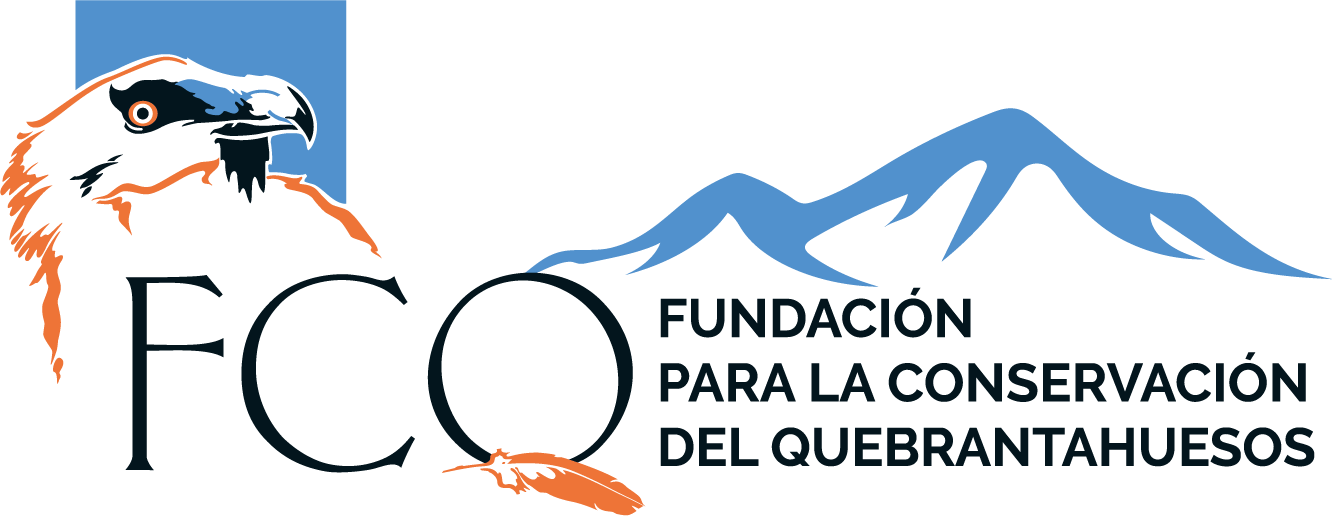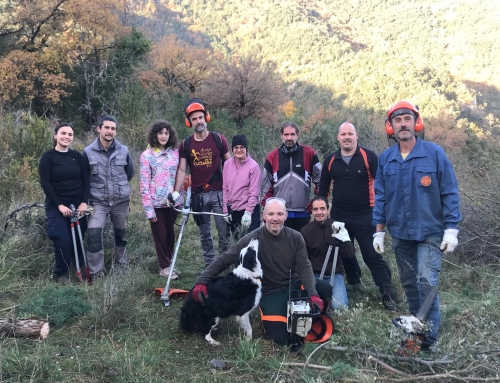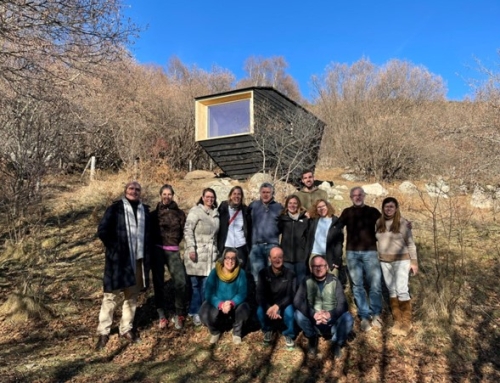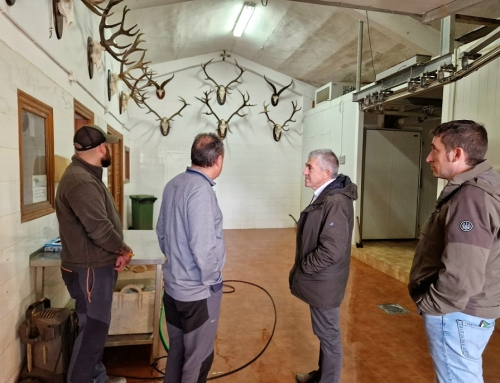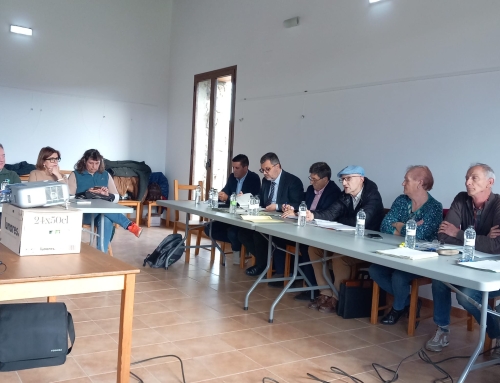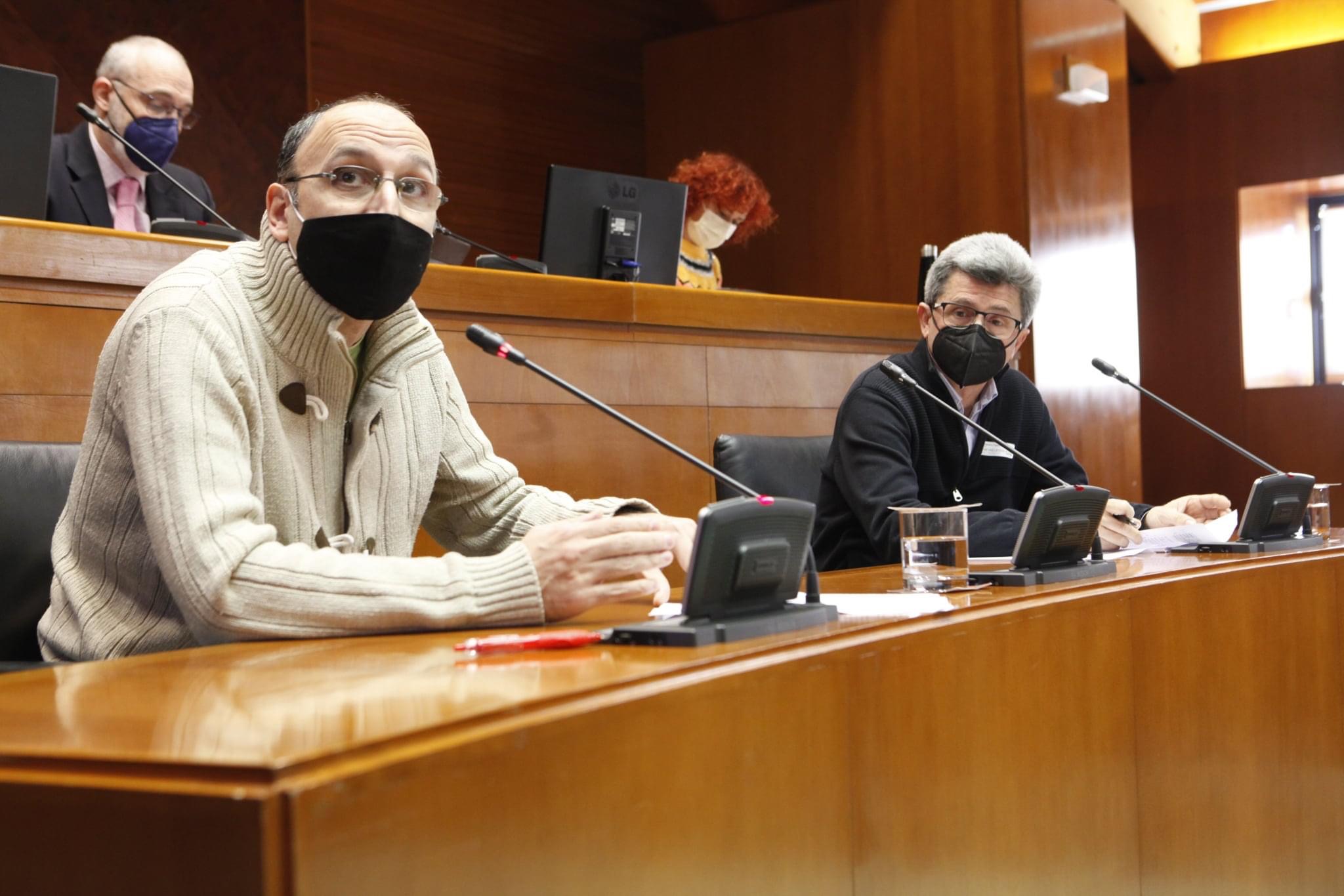
Appearance in the Cortes de Aragón of the environmental groups in a hearing on the Simplification Law. First of all, as environmental organizations, we would like to thank the invitation to this hearing, especially the groups that have proposed it to us. Having said this, we would like to express our perplexity and deep concern when we see the legal text that is being dealt with and the format chosen. This Simplification Law is going to entail the modification or partial suppression of practically the entire legal body of Aragonese law elaborated in the last decades. And it is going to be carried out in just a few days and applying this “simplified” format, by means of a fait accompli policy of approving and consummating the law for its own approval. Thus, for example, this procedure is going to lack the hitherto necessary process of public information… for a text that changes all the laws of Aragon. It is also surprising that this procedure invokes the exceptional and urgent nature of the current health crisis, but warns that the changes brought about by this exceptional nature are already going to be permanent and definitive in time. For this reason, we would already like to ask for a reflection on this, on the need to change all the Aragonese laws and whether it is sensible to do so without reflection or public information. A law that after a first and general analysis, impossible with these deadlines and this scope nothing more detailed, we are very afraid that it will become in practice an obstacle to the defense of the public. A hindrance of the control by the public that is reflected in the substitution of the current public processes by a private Responsible Declaration elaborated in the best of the cases by the new figure of the Entities collaborators of the certification. This represents a blatant privatization and outsourcing which is very serious and which we reject. And it is an obstacle to the defense of the public, since what is going to be affected and diminished is the public good. In our case, as environmental organizations, we refer to issues such as landscape, air, health, energy, rivers, mountains… fundamental aspects that are going to see how the laws that protect them are going to be “simplified”: that is to say, reduced if not eliminated. We have been repeatedly witnessing a discrediting of the public sector, showing that regulations and administrative procedures only serve to hinder the economy, that they are a hindrance in the face of a normal or emergency situation. The public sector is being reduced and the private sector is being boosted. This is even more accentuated with environmental regulations, which are not seen as a citizen’s right but as a whim that wastes time and money. In environmental matters, a basic legal principle is that of precaution and caution. And precisely with this simplification and hindrance, this legal precept is blown to bits. With the aggravating factor that some of the current environmental laws are an achievement after decades of social awareness that now in a matter of days will be eliminated. This new legal framework that is presented to us indicates that instead of previous controls by the technicians of the public administrations now there will be a responsible Declaration of the promoter and that from that same day of its presentation, the activity can begin. No controls.
And without public information. As is already going to happen to this legal text itself, which anticipates the new reality if the present law is approved. In the best of cases, the affidavit will carry a report from the new figure of the collaborating certification entity, of a private nature and linked to the promoter of the activity itself. We are concerned about this tendency to increasingly reduce the deadlines, the generalization of the responsible declaration, the greater presence of collaborating entities and the lack of real control and inspection. Although the need for sufficient inspection services is mentioned in Article 15.4 and in Additional Provision 4, nothing is specified. It is not understood that Article 18.1 states “documentation may be required” when it should read “documentation shall be required”. On the contrary, in Final Provision 2, which amends Law 5/2015 on subsidies, in art. 19.3 it is stated that the documentation must be submitted before the payment of the subsidy. A matter that seems right to us and that should be applied to all responsible statements: one thing is to streamline and another is to pass on the documentation. Art. 31 also leaves a hint of arbitrariness, where it states that the documentation will be required “to those who are strictly necessary”. The text indicates that if there is non-compliance with the sworn, in the most serious cases it should be “restored to the previous legal situation”. But in environmental matters this is materially impossible. If an activity that declares that it does not pollute turns out that it does pollute and has caused some death or contamination of a river, how do you restore a life to its legal status as a living person? or how do you restore a river to its legal status as non-polluted? in a land that after decades of the tragedy of Inquinosa we continue with our territory contaminated by lindane, it is regrettable that we forget. Regarding the generalization of administrative silence as a positive response provided for in art. 27, we are concerned that it could become a trapdoor. It is absurd to admit that if the Administration does not have time to make a pronouncement, the logical consequence is to go ahead as if nothing had happened. And if it has had time to review the request, it is absurd not to finish with a response. Although it contemplates the exception of not applying it to “activities that may damage the environment”, we believe that this is very ambiguous and that it should be specified what these activities are. It should refer to Annexes I to IV of Law 11/2014 on Prevention and Environmental Protection, at least. To this must be added the provisions of Art. 29 on the deadlines for issuing reports and opinions which remains at 10 days, which is practically impossible for collective bodies such as the Urban Planning Councils, OT, CPN, etc. In addition, the penalties and statute of limitations are ridiculous, which deepens the idea of impunity and lack of control for the defense of the environment and the public. From art. 58 to 68, different measures for the energy sector are extensively regulated, including among the renewables a generic reference to the use of unspecified waste, which generates a great deal of environmental concern.
Even the public information process is cancelled for some of them, others are exempted from construction and operation authorization and the problem of fragmentation of projects to avoid environmental regulations is left unresolved. For all these reasons, we can only reiterate our request to reflect on whether it is necessary to change the entire legal framework, leaving public control and the public defenseless, and to do so in this way without the capacity for analysis and without public information. Expedite, yes, but not like this. Expedite with more public resources, providing them with sufficient material and human resources to do their job properly, with more compliance with existing regulations, without hesitation in the criteria of prevention, precaution and safety, without leaving control and inspection in the air. With respect for information, participation and transparency. Video of the appearance (from minute 58)
